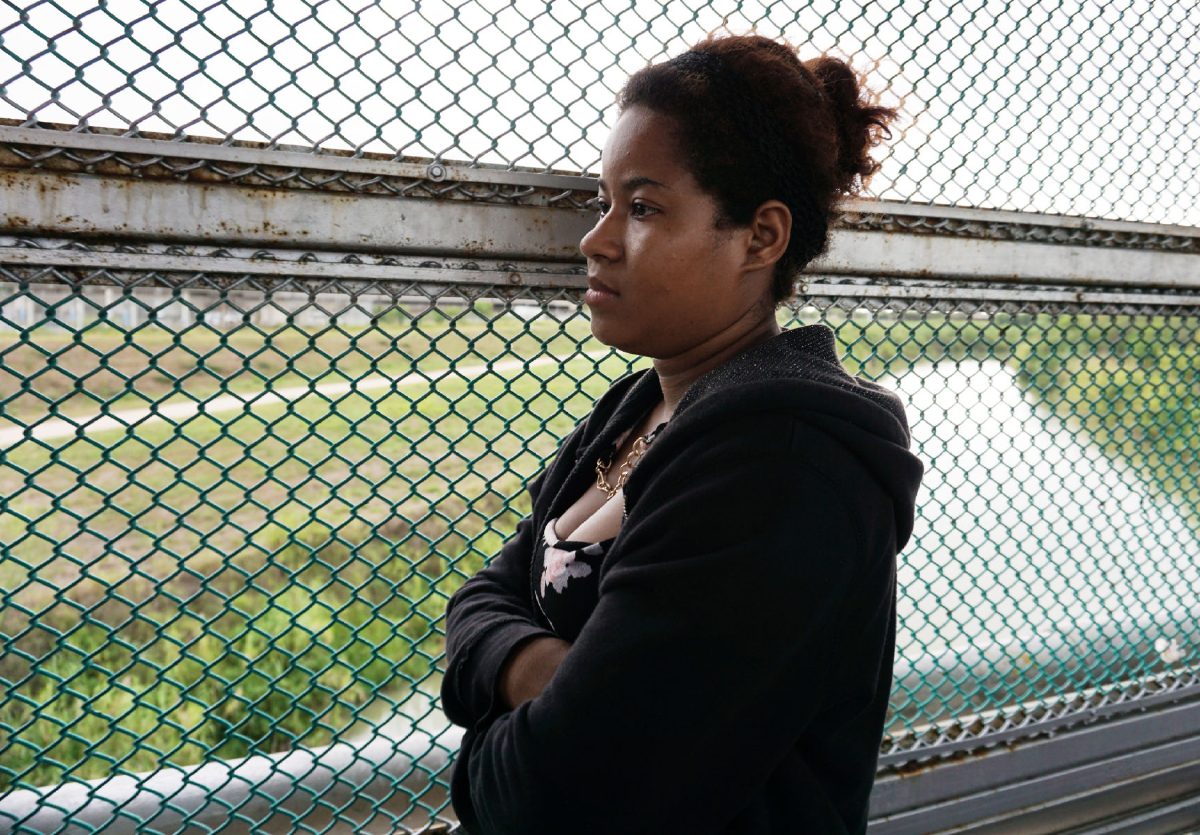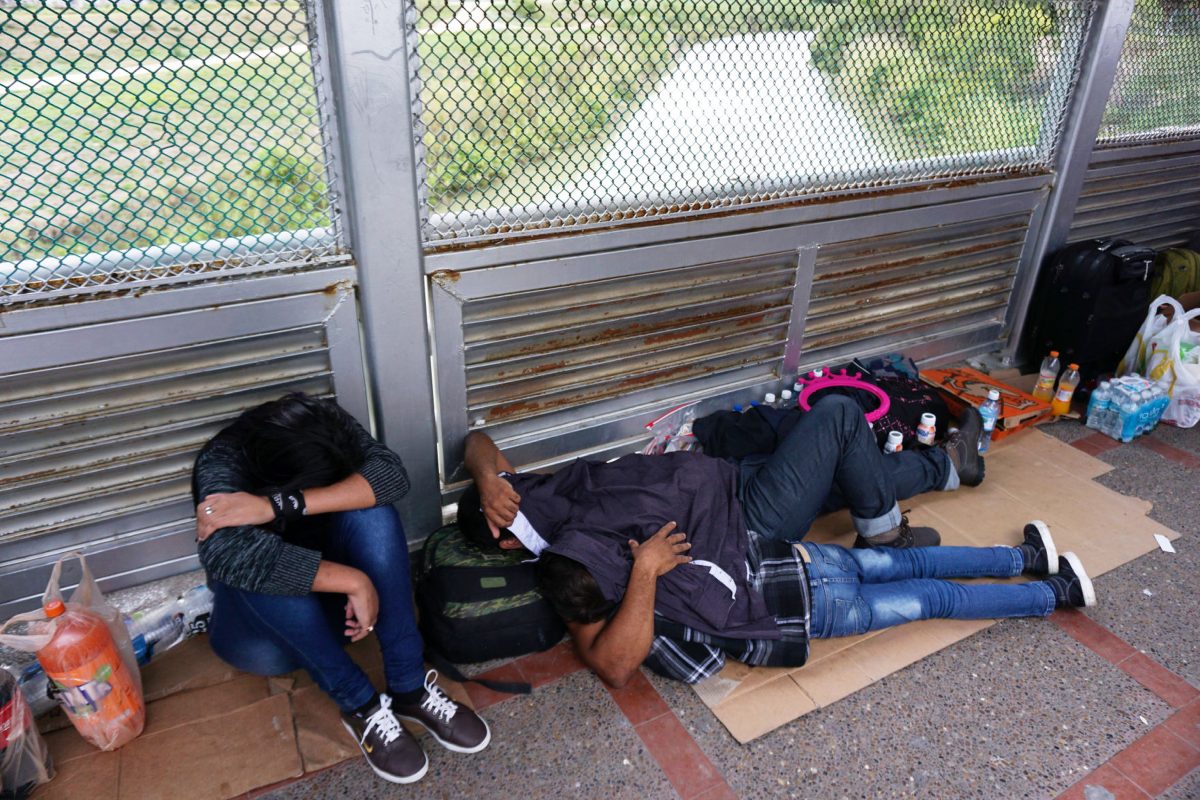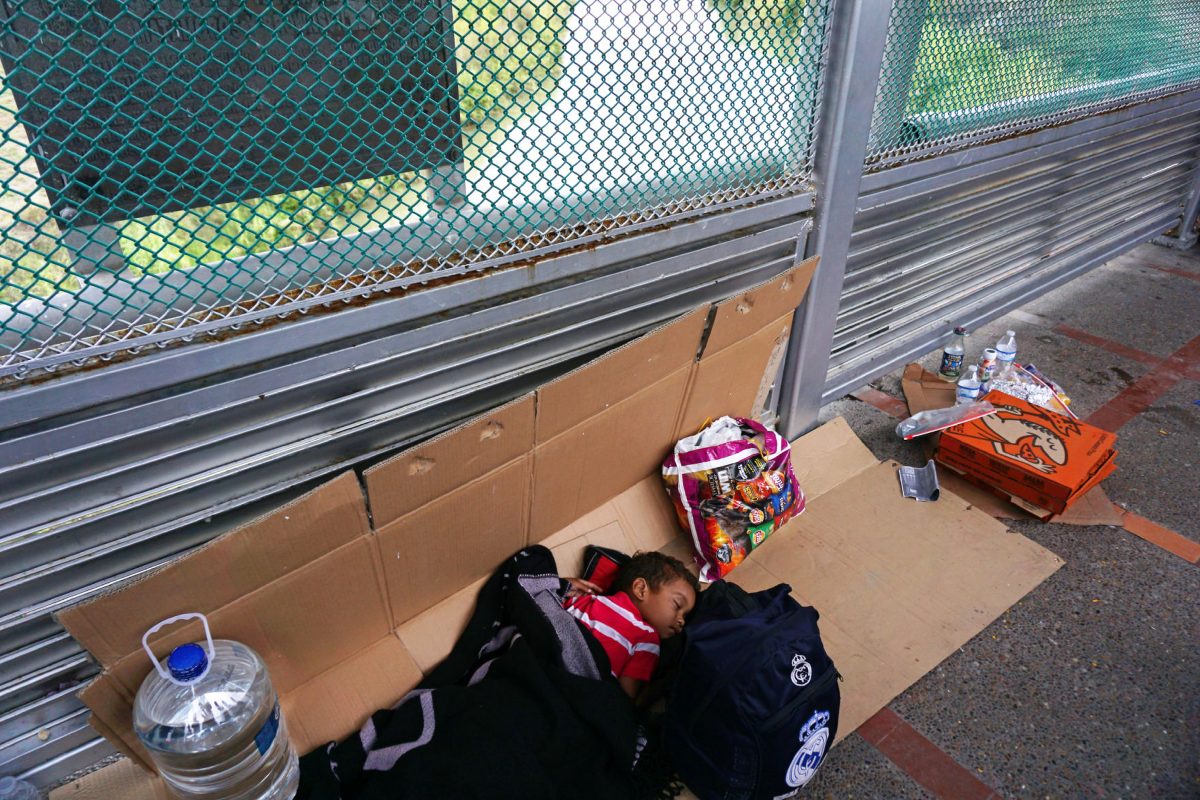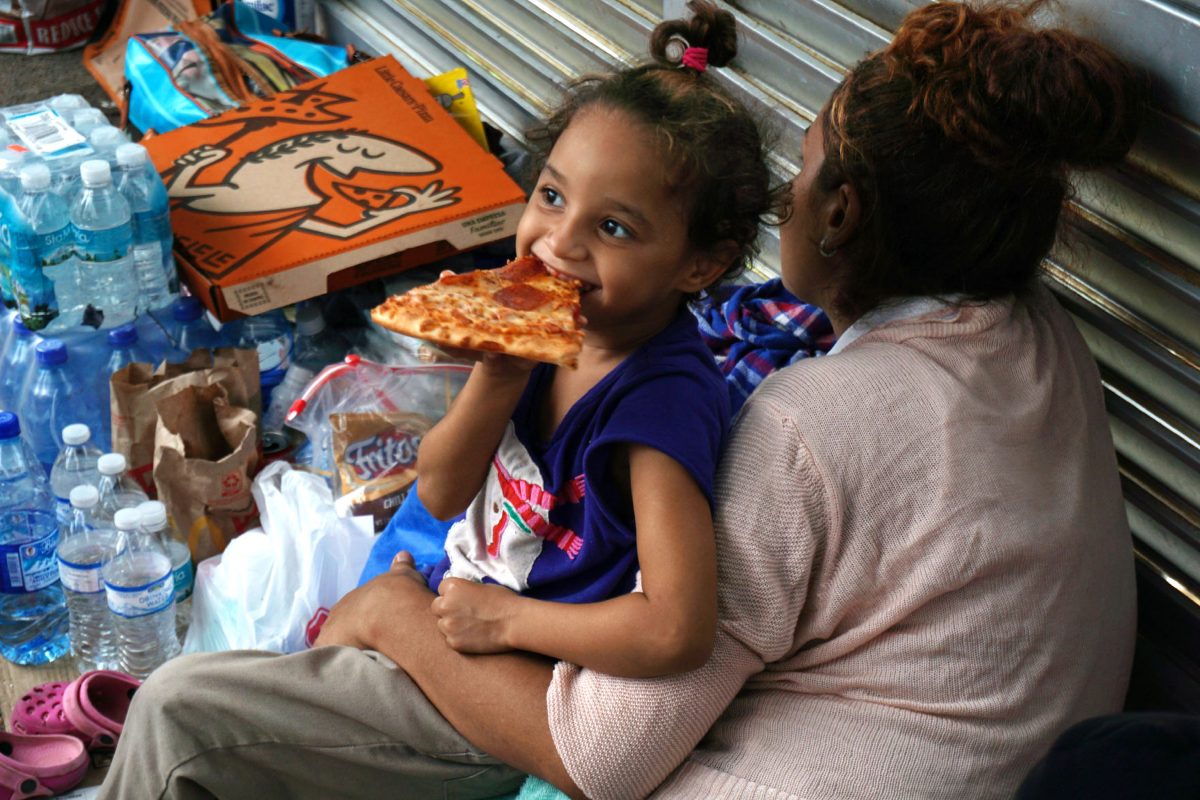Marco Samayoa owned a restaurant selling typical Guatemalan food in his native Mazatenango, a town in southwestern Guatemala.
Marco Samayoa owned a restaurant selling typical Guatemalan food in his native Mazatenango, a town in southwestern Guatemala.
The soft-spoken 22-year-old said he was approached by gang members who, at first, intimidated him into handing over money from his business. They later demanded he join them.
Samayoa told his story last week while sitting on Gateway International Bridge, one of nine migrants at the time who were literally suspended between two counties as they awaited their turn to cross into the United States and apply for asylum. U.S. Customs and Border Protection officers stood a few feet away, controlling the flow of pedestrians who proceeded toward the primary inspection building on the U.S. side.
Samayoa said his wife and four children traveled ahead of him, hoping to join his in-laws in California, because they didn’t have enough money to go all together. They’ve been apart for about six weeks and, while he knows they arrived in the United States, neither he nor his mother-in-law knows exactly where they are.
Homeland Security Secretary Kirstjen Nielsen told a reporter during a June 18 news conference it was incorrect to say people were turned away from ports of entry.
Rather, she said, CBP resources were limited. Illegal border crossings exceeded 50,000 people during each of the past three months, she said, and a decade-long increase in asylum cases has created a backlog of 600,000 cases.
“… If we do not have enough bed space, if we do not have enough medical personnel on staff, if we do not have enough caretakers on staff, then we will tell people that come to the border that they need to come back,” Nielsen said.
Edgar Saldivar, senior staff attorney for the American Civil Liberties Union of Texas, said he doesn’t buy that explanation because the government has not been transparent about what it is doing to address those resource limitations. The organization first heard about port of entry “turnbacks” six to eight weeks ago in El Paso.
Saldivar said the situation stems from the Trumps administration’s “zero tolerance” policy on illegal entry that led to family separations.

















